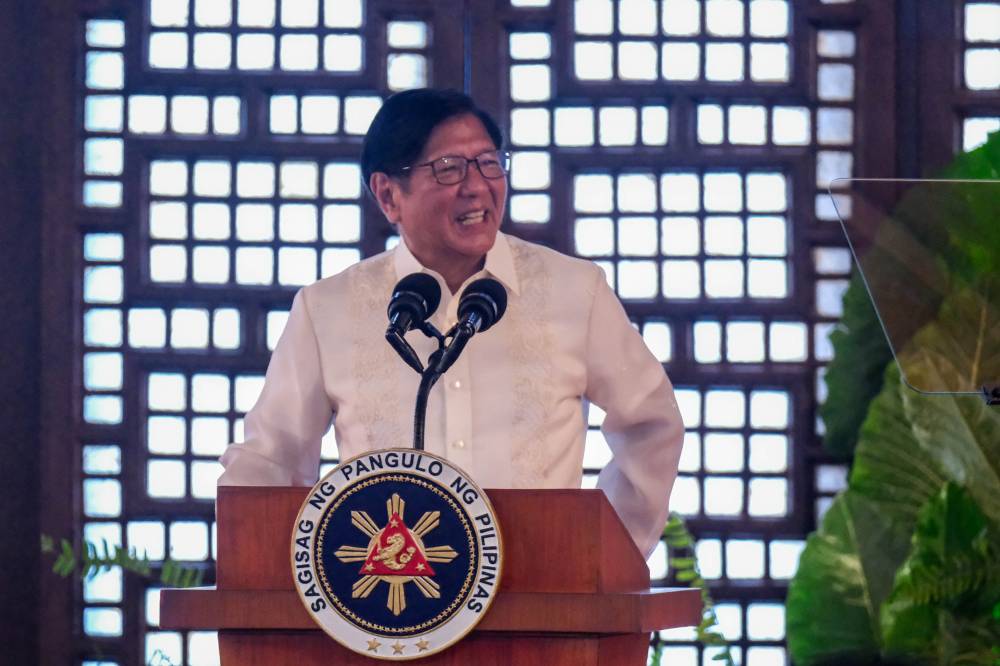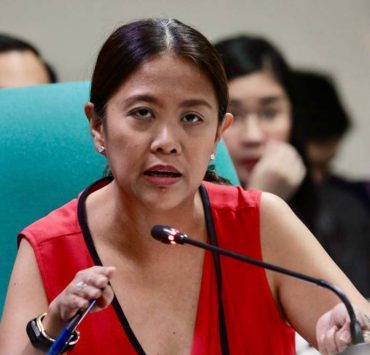President’s order surprises PH biz; ‘disruption’ a concern

Business groups on Thursday expressed concerns over President Marcos’ call for the mandatory courtesy resignation of all his Cabinet secretaries, warning that the move could disrupt economic activities and complicate policy implementation at a time when the economy is reeling from global trade uncertainties.
For private sector economists and analysts, the President’s move may be a way for him to realign priorities and reassess performances due to the public’s growing frustration over the slow progress in fulfilling his promises in key economic areas, particularly in tackling poverty. (See By The Numbers on Page A5.)
Leonardo Lanzona, an economist at Ateneo de Manila University, said the change in the Cabinet was “an admission” that the government had failed to tackle poverty.
“I would think that this Cabinet change proposal is just a natural response given the poor showing of the administration senatorial slate in the last elections. The results indicate that poverty is the key issue as the winning candidates are those who have clear platforms in addressing this,” Lanzona said.
“The success of this move now depends on who the President will appoint,” he added.
Economic disruption
The Philippine Chamber of Commerce and Industry (PCCI), the country’s biggest business organization, expressed surprise at the President’s move, citing what it described as the government’s relatively strong performance in managing the economy.
“It is just unfortunate that economic growth has been undermined by developments at the political front,” the PCCI said in a statement.
“We are trying to get more investments for the country, especially with the passage of the CREATE MORE Act and the PPP Code. We want to continue fostering economic growth and investor confidence,” the group added.
It was referring to Republic Act (RA) No. 12066, signed in November 2024, which seeks to generate jobs and spur economic growth by enhancing the tax and incentive regime to attract investors; and to RA 11966, the law governing public-private sector partnerships (PPP) for infrastructure projects, whose revised implementing rules were approved also last year.
“We hope that the courtesy resignations will bring in accountable and merit-based appointments and the appointments done the soonest possible time to avoid instability and so as not to derail economic continuity,” the PCCI said.
Makati Business Club (MBC) chair Edgar Chua also expressed apprehension over the move, cautioning that replacing one or all of the President’s economic secretaries would be “disruptive” to the economy.
He said the extent of the disruption would depend on how quickly the President can appoint replacements.
Sergio Ortiz-Luis Jr., who heads both the Employers Confederation of the Philippines (Ecop) and the Philippine Exporters Confederation Inc. (Philexport), said he hoped that the President would retain most, if not all, his economic secretaries.
The Federation of Filipino-Chinese Chambers of Commerce and Industry Inc. (FFCCCI) and the influential Management Association of the Philippines (MAP), on the other hand, supported the President’s call.
“The President’s action demonstrates his strong leadership and a clear vision for a more responsive and effective government, responsible and accountable to the Filipino people,” the FFCCCI added.
“Difficult as it may be, the call of leadership is to make such hard decisions in the interest of establishing meritocracy and encouraging performance,” MAP said in a statement.
Strategic reset
Unicapital Securities Inc. research head Wendy Estacio-Cruz said this was a “strategic attempt” to reset the Marcos administration’s direction “in light of disappointing election outcomes.”
“Although it’s presented as a push for accountability and results, I also see it as a way to consolidate power, test loyalty and shift focus from politicking to a more performance-driven approach,” Cruz told the Inquirer.
Michael Ricafort, chief economist at Rizal Commercial Banking Corp., noted that the Marcos administration needed to address many challenges, such as attracting more foreign direct investments, lowering the cost of electricity and better addressing corruption, through Cabinet officials.
“New approaches, even new, out-of-the-box solutions are required to improve the performance of various departments,” he said.
Jonathan Ravelas, senior adviser at Reyes Tacandong and Co., also cited the President’s recent radio interview during which he recognized the slow progress of his administration’s projects.
“[This] move gives him the leeway to refocus on strengthening economic resilience, improving food security and ensuring energy stability—key areas that directly impact Filipinos amid global and domestic challenges,” Ravelas said.
But for Cruz, the effectiveness of Mr. Marcos’ order would depend on who would keep their seats and the visible reforms to follow.
“Without those tangible results, it risks being perceived as just another political reset rather than a serious effort to reform governance,” she said.
Global uncertainties
John Paolo Rivera, a senior research fellow at state-run think tank Philippine Institute for Development Studies, warned that overhauling the economic team in the middle of tariff-induced global uncertainties could hurt the Philippine economy.
“This introduces uncertainty at a time when stability and continuity are crucial amid global trade tensions, weak investment inflows and the lingering effects of recent external shocks such as tariffs and slowing remittances,” Rivera said. “This development could temporarily disrupt policymaking and implementation, especially if key fiscal, monetary, or reform programs lose their champions or experience delays in recalibration.”
Rivera said that while the economic team was able to manage the short-term shocks, there are still opportunities in strengthening medium-term strategies, especially in agriculture, manufacturing and digital transformation.
“If the reset ushers in fresh, reform-oriented technocrats who can accelerate inclusive growth, enhance public sector execution, and ensure economic resilience, then it could be an opportunity,” he said.
“But the transition must be transparent and strategic, not purely political. Otherwise, it risks undermining investor confidence and slowing the country’s growth recovery,” he added.

















